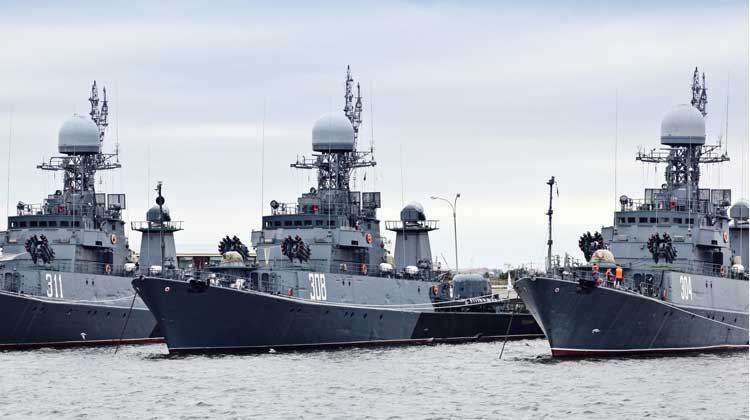
In the wake of “inconclusive wars in Afghanistan and Iraq,” along with the 2008 financial crash, America’s desire for global leadership is in decline, according to Gary Schmitt, resident scholar at the American Enterprise Institute (AEI) and editor of Rise of the Revisionists.
Speaking in AEI’s online forum reTHINK TANK, Schmitt said the country still faces multiple global threats but public opinion isn’t focused on addressing them.
“When he entered office, President Obama pledged to rebuild the country by moving away from nation building abroad to nation building at home,” Schmitt said. “Likewise, when running for president, Donald Trump questioned the wars America had been fighting and the value of America’s alliances abroad.”
The problem, he said, is that the United States pulling back on the national stage is not a formula for global stability. Speaking specifically to China, Russia, and Iran, the result is the exact opposite.
“[E]ach nation has read U.S. policies and cuts to defense spending as signs of American weakness and decline,” Schmitt said. “As a result, we are facing growing uncertainty in three regions of the world—Europe, Asia, and the Middle East—that American statecraft has long understood to be the lynchpins of global peace and security.”
Historically, he said, U.S. retreat on the national stage has not satisfied rising powers at all. Instead, newfound dominance of such powers often results in either regional pushback against the rising power or appeasement.
“In this case, all three countries—Russia, China, and Iran—are illiberal, and present themselves as challengers to the democratic West,” Schmitt said. “By their very nature, they rest uneasy in a world now dominated by liberal trade and politics and where the dominant power is still the United States.”
But in the wake of the Soviet Union’s fall in 1991, he said the United States began retreat from the global stage, with many thinking little threatened the country’s security. With that, defense spending and global military deployments declined.
“Most Americans believe that 9/11 changed things, stirring Americans from their delusions about the dawn of an era of absolute security,” Schmitt said. “But despite substantial investments in fighting the wars in Iraq and in Afghanistan, successive U.S. presidents declined to make the long-term investments necessary to modernize the military.”
Such declines still hinder the U.S. military, and an attitude change in Washington is crucial, he added.
“To restore the world order, Congress and the White House must adopt a long-term perspective,” Schimitt said. “Defending the liberal order is in our interest, and it is best done with allies who, in exchange for American security guarantees, have by and large allowed the United States to construct a global order that is both in our image and to our advantage.”
See entire reTHINK Tank episode here.
© 2018 Homeland411